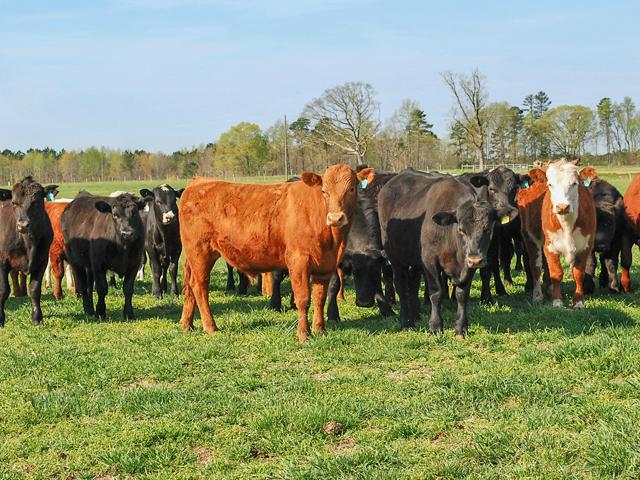Ask the Vet
Pneumonia in Cattle
READER QUESTION:
I got a report back from our state lab on a calf that died. It said she had something called "Mannheimia." I have never heard of this. What is it and what do I need to do to prevent it from happening again?
DR. MCMILLAN'S ANSWER:
Mannheimia haemolytica is what we commonly used to call Pasteurella haemolytica. Every so often microbiologists change the name of organisms to confuse us -- or so it seems. In their defense, as they learn more about organisms, and especially microorganisms, they reclassify them to better fit with those findings. In this case, Mannheimia is the most common bacteria involved in pneumonias of cattle and is usually the cause of death.
P[L1] D[0x0] M[300x250] OOP[F] ADUNIT[] T[]
So, what can you do to prevent this from happening again? There are several steps.
First, have a good biosecurity program in place. We most commonly see this type of pneumonia when cattle have been brought in from other sources and mixed with the herd. Your original cattle are most often the ones who get sick. Always purchase cattle and calves from reputable sources and always isolate them from your herd for at least two weeks.
Second, minimize stress in your cattle. Have a good nutrition and mineral program in place. Make sure cattle are in good body condition at all times. Provide a clean, comfortable environment. And use low-stress, gentle handling of cattle in an area with good working facilities.
Third, emphasize a good preventive health program including parasite control for both internal and external parasites. A good viral vaccination program -- infectious bovine rhinotracheitis (IBR), bovine viral diarrhea (BVD), parainfluenza-3 (PI-3) and bovine respiratory syncytial virus (BRSV) -- should begin in your calves prior to weaning. Cows and bulls should be vaccinated once a year. Many experts recommend vaccination for Mannheimia and Pasteurella multocida.
This should get you started, but to be sure you've done everything possible work closely with your veterinarian to develop a solid plan to prevent this from happening again. Cows are worth too much money to lose them when we can avoid it.
**
Editor's Note:
Please contact your veterinarian with questions pertaining to the health of your herd or other animals. Every operation is unique, and the information in this column does not pertain to all situations. This is not intended as medical advice but is purely for informational purposes.
Write Dr. Ken McMillan at Ask the Vet, 2204 Lakeshore Dr., Suite 415, Birmingham, AL 35209, or email vet@progressivefarmer.com.
(c) Copyright 2022 DTN, LLC. All rights reserved.






